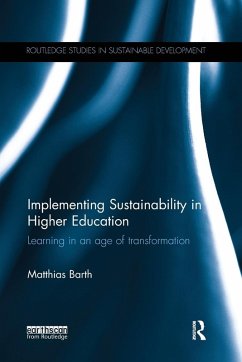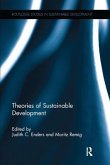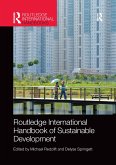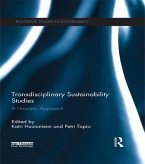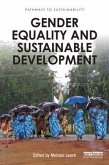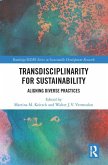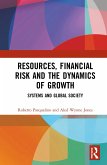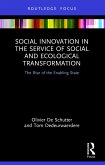In a time of unprecedented transformation as society seeks to build a more sustainable future, education plays an increasingly central role in training key agents of change. This book asks how we can equip students and scholars with the capabilities to promote sustainability and how the higher education curriculum can be changed to facilitate the paradigm shift needed.
Across the globe, a rising number of higher education institutions and academics are responding to these questions by transforming their own teaching and learning and their institutions' curricula. This book contributes to that development by examining in-depth case studies of innovative approaches and curriculum changes at multiple levels of the education sector. Elaborating key principles of higher education for sustainable development and identifying drivers and barriers to implementing sustainability in the curriculum, the book provides a comprehensive overview of what makes higher education for sustainable development a unique field of research and practice, as well as offering a coherent narrative of how change can be effected in it.
This much-needed book is a valuable resource to inform, guide and inspire students, academics, administrators and community partners, whether experienced or new to the field, whether already committed or not to higher education for sustainable development in an age of transformation.
Across the globe, a rising number of higher education institutions and academics are responding to these questions by transforming their own teaching and learning and their institutions' curricula. This book contributes to that development by examining in-depth case studies of innovative approaches and curriculum changes at multiple levels of the education sector. Elaborating key principles of higher education for sustainable development and identifying drivers and barriers to implementing sustainability in the curriculum, the book provides a comprehensive overview of what makes higher education for sustainable development a unique field of research and practice, as well as offering a coherent narrative of how change can be effected in it.
This much-needed book is a valuable resource to inform, guide and inspire students, academics, administrators and community partners, whether experienced or new to the field, whether already committed or not to higher education for sustainable development in an age of transformation.
We live in an age of drastic change, and if we don't want to be bystanders of collapse, we must steer this age towards sustainability. Matthias Barth has written a book that stimulates rich reflections on what sustainability change agents need to be capable of, and how to acquire these skills. I hope the book gets widely used by students and teachers to put these reflections to work in education and professional practice.
Arnim Wiek, Arizona State University, USA
Learning is the key to change for sustainability in higher education, and yet, not all learning contributes to the building of a sustainable future. Much has been written about this contradiction, especially with regards to curriculum practice, but no text to date has presented a dialogical perspective of the university as a learning organisation for sustainability. This book directly addresses this need and provides a stepping-stone for educators, experts and those engaged in making a transformative difference through higher education.
Daniella Tilbury, University of Gloucestershire, UK
This stands out from the many other books focusing on sustainable development and higher education because of its strong learning focus: not just learning within universities by students and their teachers, crucial though this is; but continuing learning beyond the institution within the wider society. This is welcome as sustainable development will not happen unless it's a social learning process through which we shall, if we are lucky, transform all our futures.
William Scott, University of Bath, UK
A comprehensive and important contribution to the literature and initiatives focused on transforming our universities to deliver their critical role of producing graduates with the capabilities necessary to ensure the sustainable development of our world over the coming decades.
Geoff Scott, University of Western Sydney, Australia
Among other topics, the book provokes thoughts and provides resources to contemplate what change agent skills our graduates need so they can help shift societal norms to a more sustainable future. Without dictating the answers, this publication provides useful questions to frame how educators might identify the change agent skills that are common across cultures and countries, bringing thoughtful perspectives and useful information to this urgent topic. This book can be used to help higher education evolve to make learning that supports a sustainable future part of the curricula for all students.
Debra Rowe, U.S. Partnership for Education for Sustainable Development, USA
Over the last decade we have seen an increasing number of publications on higher education and sustainability with case studies and best practice examples from around the globe. What makes this book a unique contribution is how it brings together experiences from different case studies and elaborates key principles of learning in higher education - both individually and as an organization. A must-read for anybody involved in higher education who seeks answers about how to support systemic transformation.
Gerd Michelsen, Leuphana University of Lüneburg, Germany
This book captures the areas, issues and future directions that are at the heart of education for sustainable development success. It offers readers a coherent and systematic account of learning and teaching matters that collectively reinforce its thought provoking message of societal transformation. This is a much needed book that pioneers education for sustainability and provides convincing evidence and new insights that can only result in graduates being ready and able to contribute to a more sustainable future.
Barbara de la Harpe, University of Southern Queensland, Australia
Arnim Wiek, Arizona State University, USA
Learning is the key to change for sustainability in higher education, and yet, not all learning contributes to the building of a sustainable future. Much has been written about this contradiction, especially with regards to curriculum practice, but no text to date has presented a dialogical perspective of the university as a learning organisation for sustainability. This book directly addresses this need and provides a stepping-stone for educators, experts and those engaged in making a transformative difference through higher education.
Daniella Tilbury, University of Gloucestershire, UK
This stands out from the many other books focusing on sustainable development and higher education because of its strong learning focus: not just learning within universities by students and their teachers, crucial though this is; but continuing learning beyond the institution within the wider society. This is welcome as sustainable development will not happen unless it's a social learning process through which we shall, if we are lucky, transform all our futures.
William Scott, University of Bath, UK
A comprehensive and important contribution to the literature and initiatives focused on transforming our universities to deliver their critical role of producing graduates with the capabilities necessary to ensure the sustainable development of our world over the coming decades.
Geoff Scott, University of Western Sydney, Australia
Among other topics, the book provokes thoughts and provides resources to contemplate what change agent skills our graduates need so they can help shift societal norms to a more sustainable future. Without dictating the answers, this publication provides useful questions to frame how educators might identify the change agent skills that are common across cultures and countries, bringing thoughtful perspectives and useful information to this urgent topic. This book can be used to help higher education evolve to make learning that supports a sustainable future part of the curricula for all students.
Debra Rowe, U.S. Partnership for Education for Sustainable Development, USA
Over the last decade we have seen an increasing number of publications on higher education and sustainability with case studies and best practice examples from around the globe. What makes this book a unique contribution is how it brings together experiences from different case studies and elaborates key principles of learning in higher education - both individually and as an organization. A must-read for anybody involved in higher education who seeks answers about how to support systemic transformation.
Gerd Michelsen, Leuphana University of Lüneburg, Germany
This book captures the areas, issues and future directions that are at the heart of education for sustainable development success. It offers readers a coherent and systematic account of learning and teaching matters that collectively reinforce its thought provoking message of societal transformation. This is a much needed book that pioneers education for sustainability and provides convincing evidence and new insights that can only result in graduates being ready and able to contribute to a more sustainable future.
Barbara de la Harpe, University of Southern Queensland, Australia

